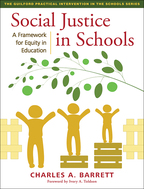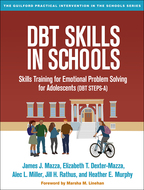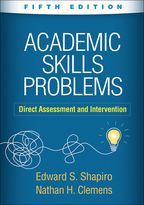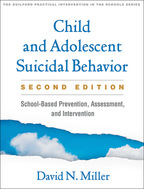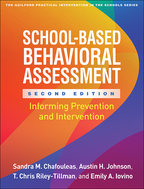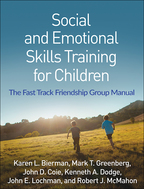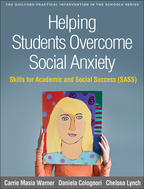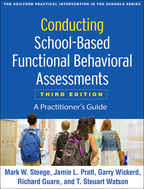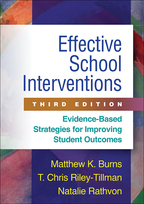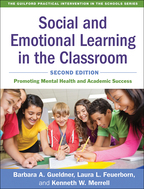Social Justice in Schools
A Framework for Equity in Education
Charles A. Barrett
Foreword by Ivory A. Toldson
HardcoverPaperbacke-bookprint + e-book
Hardcover
orderMay 19, 2023
ISBN 9781462552153
Price: $57.00 192 Pages
Size: 8" x 10½"
Paperback
orderMay 19, 2023
ISBN 9781462552146
Price: $38.00192 Pages
Size: 8" x 10½"
e-book
orderApril 24, 2023
PDF and Accessible ePub ?
Price: $38.00 192 Pages
ePub is Global Certified Accessible
print + e-book $76.00 $45.60
orderPaperback + e-Book (PDF and Accessible ePub) ?
Price: 192 Pages
ePub is Global Certified Accessible
Buy the audiobook on Audible.com
| Watch an interview with Charles A. Barrett. |  |
| Watch the book trailer for Social Justice in Schools. |  |
Read a Q&A with featured author, Charles A. Barrett!
The reproducible materials can be downloaded and printed in PDF format.
“This comprehensive and engaging text provides and explains the information, context, and tools every school psychologist, teacher, administrator, and educational staff person needs to understand the critical importance of social justice work in schools….Barrett has crafted a resource that imparts essential knowledge and empowers every reader to be a proactive agent of change. In an evolving educational landscape, this book provides the tools and expertise necessary to lead the way toward a brighter, more inclusive future for our students and communities.”

—NASP Communiqué
“This essential book will engage educators across disciplines and at all levels—from preservice teachers to practicing school psychologists. It provides insight into what social justice means in the context of schooling and how educators' daily practices can facilitate social justice for the children, families, and communities they serve. Barrett has created an easy-to-read book that is a call to action for educators concerned with equity, fairness, and opportunity for marginalized students.”

—Sherrie L. Proctor, PhD, School Psychology Program, Queens College, City University of New York
“A toolkit for educators who endeavor to transform their classrooms into just communities. Barrett skillfully weaves theory, research, and social justice practices, and includes thought-provoking exercises at the end of each chapter. The rich stories, helpful diagrams, and community-building activities will help educators develop the needed skill set to practice social justice in the schoolhouse. Drawing on his own experiences as a school psychologist, Barrett has crafted a needed resource aligned with the NASP Practice Model.”

—Terri N. Watson, PhD, School of Education, The City College of New York
“While many social justice books are written from a theoretical perspective that leaves the reader wondering what to do next, Barrett’s book focuses on knowledge and tools that educators can use right away. Case studies, vignettes, resources, and reflection questions aid in understanding specific ways to enact anti-racist ideals. Using the 'Five C's of Equity' described in the book will allow school teams to change practices, policies, and behavior to ensure equitable outcomes. A 'must read'!”

—Andria Amador, EdD, NCSP, Senior Director of Behavioral Health Services, Boston Public Schools
“Barrett highlights the intersection between theory and practice in order to move equity from talk to action. He provides a roadmap on how to ensure adult issues don’t get in the way of responding to what students need. This text inspires and equips educators in contexts where equity is a collective goal. What resonates with me most as a superintendent is how the book helps us learn more about not just what we think social justice is in schools, but, more important, what we can do with it.”

—Nyah D. Hamlett, EdD, Superintendent, Chapel Hill–Carrboro City Schools, North Carolina
“Social Justice in Schools is a book for this day and time. Barrett adeptly walks the fine line between the prescriptive and descriptive to give educators a framework to appropriately serve the children in their care. This book is for new and veteran teachers, school psychologists, and other school professionals. As a middle school division director and an educational consultant, I found tangible tools for professional development. Run, don't walk, to get this book.”

—Worokya Duncan, EdD, Head of Upper School, The Cathedral School of St. John the Divine, New York City
“Rooted in Bronfenbrenner’s ecological systems theory, this book provides an accessible, resourceful, and thorough framework for centering social justice work in school contexts. Drawing on literature from multiple disciplines and from his own positionalities and life experiences as a Black professional, Barrett challenges the reader to critically reflect about power and to unlearn deficit frames. He invites all educators to a journey of creative co-imagination of systemic change at the level of policy, assessment, and in learning spaces, proposing a transformation that can center all languages and ways of learning.”

—María Rosa Brea-Spahn, PhD, CCC-SLP, Department of Communicative Sciences and Disorders, New York University
—NASP Communiqué
“This essential book will engage educators across disciplines and at all levels—from preservice teachers to practicing school psychologists. It provides insight into what social justice means in the context of schooling and how educators' daily practices can facilitate social justice for the children, families, and communities they serve. Barrett has created an easy-to-read book that is a call to action for educators concerned with equity, fairness, and opportunity for marginalized students.”
—Sherrie L. Proctor, PhD, School Psychology Program, Queens College, City University of New York
“A toolkit for educators who endeavor to transform their classrooms into just communities. Barrett skillfully weaves theory, research, and social justice practices, and includes thought-provoking exercises at the end of each chapter. The rich stories, helpful diagrams, and community-building activities will help educators develop the needed skill set to practice social justice in the schoolhouse. Drawing on his own experiences as a school psychologist, Barrett has crafted a needed resource aligned with the NASP Practice Model.”
—Terri N. Watson, PhD, School of Education, The City College of New York
“While many social justice books are written from a theoretical perspective that leaves the reader wondering what to do next, Barrett’s book focuses on knowledge and tools that educators can use right away. Case studies, vignettes, resources, and reflection questions aid in understanding specific ways to enact anti-racist ideals. Using the 'Five C's of Equity' described in the book will allow school teams to change practices, policies, and behavior to ensure equitable outcomes. A 'must read'!”
—Andria Amador, EdD, NCSP, Senior Director of Behavioral Health Services, Boston Public Schools
“Barrett highlights the intersection between theory and practice in order to move equity from talk to action. He provides a roadmap on how to ensure adult issues don’t get in the way of responding to what students need. This text inspires and equips educators in contexts where equity is a collective goal. What resonates with me most as a superintendent is how the book helps us learn more about not just what we think social justice is in schools, but, more important, what we can do with it.”
—Nyah D. Hamlett, EdD, Superintendent, Chapel Hill–Carrboro City Schools, North Carolina
“Social Justice in Schools is a book for this day and time. Barrett adeptly walks the fine line between the prescriptive and descriptive to give educators a framework to appropriately serve the children in their care. This book is for new and veteran teachers, school psychologists, and other school professionals. As a middle school division director and an educational consultant, I found tangible tools for professional development. Run, don't walk, to get this book.”
—Worokya Duncan, EdD, Head of Upper School, The Cathedral School of St. John the Divine, New York City
“Rooted in Bronfenbrenner’s ecological systems theory, this book provides an accessible, resourceful, and thorough framework for centering social justice work in school contexts. Drawing on literature from multiple disciplines and from his own positionalities and life experiences as a Black professional, Barrett challenges the reader to critically reflect about power and to unlearn deficit frames. He invites all educators to a journey of creative co-imagination of systemic change at the level of policy, assessment, and in learning spaces, proposing a transformation that can center all languages and ways of learning.”
—María Rosa Brea-Spahn, PhD, CCC-SLP, Department of Communicative Sciences and Disorders, New York University

